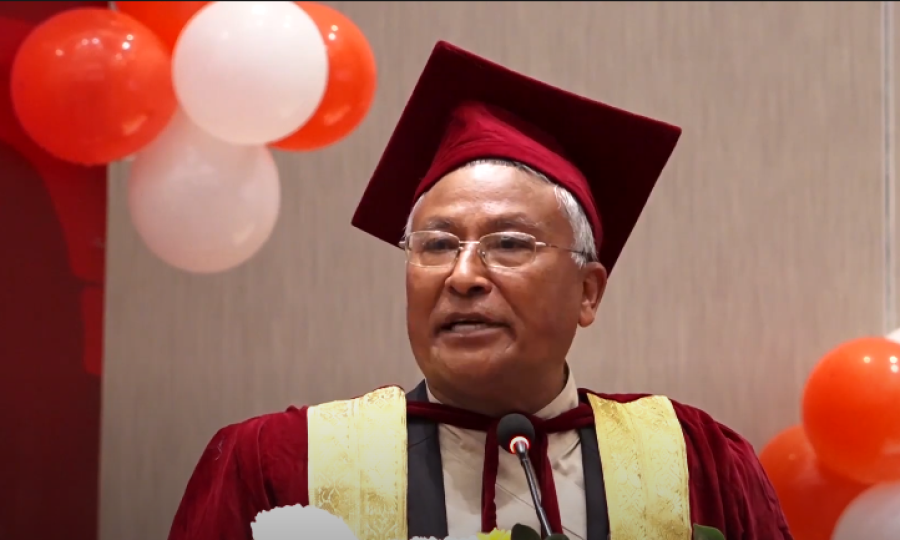National
Minister Shrestha is ignoring most pressing issues facing education sector, experts say
While schools remain closed and key exams have become uncertain due to the pandemic, the education minister hasn’t announced any measures to address the problem.
Binod Ghimire
After taking charge as Minister for Education, Science and Technology for a second time, Krishna Gopal Shrestha on Friday highlighted the work done during his first stint.
His 20-point report made public when the country reeling under the Covid-19 pandemic, has listed the appointments made in various universities and the University Grants Commission, distribution of over Rs 5 billion under the President Education Improvement Programme and constitution of the committees to set up two universities as achievements. But the report is silent about whether the ministry took any steps to ensure that school and college students participate in the teaching-learning process during the pandemic and examinations are held on time by adopting alternative measures.
Various reports have suggested that around two-thirds of the school students were left out of the teaching-learning activities during last year’s lockdown. The government had imposed a nationwide Covid-19 lockdown in March which continued for more than four months.
Shrestha took charge of the ministry for a second time when 73 out of the country’s 77 districts are under prohibitory orders yet his first decision as minister wasn’t about addressing the problems in the teaching-learning process.
The first decision he made was to form a task force to develop a five-year strategy of the Council for Technical Education and Vocational Training. Observers say Shrestha has never taken seriously the problems the pandemic has brought to the education sector.
“A visionary and decisive leadership is needed at the time of crisis,” Binay Kusiyait, a professor at the Tribhuvan University who has conducted several research studies on school education, told the Post. “But the way the Education Ministry is working shows its leadership is least worried about the crisis the education sector is facing now.”
The government had extended the ongoing academic session by two months until June expecting that the extension would make up for the loss in teaching and learning caused by the pandemic last year, however, a second wave of the pandemic has forced the government to halt the in-person learning starting April 18. Similarly, the Secondary Education Examinations and the grade 12 final examinations, which were scheduled to start from May 27 and June 6, respectively, have also been postponed until further notice.
The government is still undecided on whether to postpone the tests until the coronavirus cases subside or adopt alternative modalities for the students’ evaluation. The students and their parents have expressed fears that the already lengthy pandemic could continue further.
The aides to Shrestha, however, say the ministry is serious about conducting the examinations and continuing teaching-learning despite the pandemic.
In his address to the ministry officials, while assuming office, Shrestha said he was serious about addressing the problems affecting the educational sector, according to Ishwar Raj Dhakal, the minister’s press coordinator.
Just last month when Covid-19 cases were surging rapidly, the minister drew criticism for speaking against closing schools. On April 15 the Ministry of Health and Population asked guardians not to send their children to school to stem the spread of the virus. But two days later, on April 17, addressing a function organized by the Association of Chartered Accountants Nepal, Shrestha said the students are safer in school than at home. “Schools shouldn’t be closed,” he said. “Who can guarantee the children are safe at home when their parents go to offices?”
Unlike during the first wave, a large number of children tested positive for the coronavirus. Some 7 million students study in around 36,000 schools across the country while an additional around 1 million are enrolled in grade 11 and 12 in around 4,000 schools.
The government decided to close the academic institutions in the risky areas only after a number of school children tested positive. “The academic sector is suffering in lack of a clear government policy to combat the crisis,” Dhananjaya Sharma, former principal at Gyanodaya School told the Post. “From the decisions, the ministry is making, it is clear that they are not serious about addressing the problems brought by the pandemic.”




 16.12°C Kathmandu
16.12°C Kathmandu














